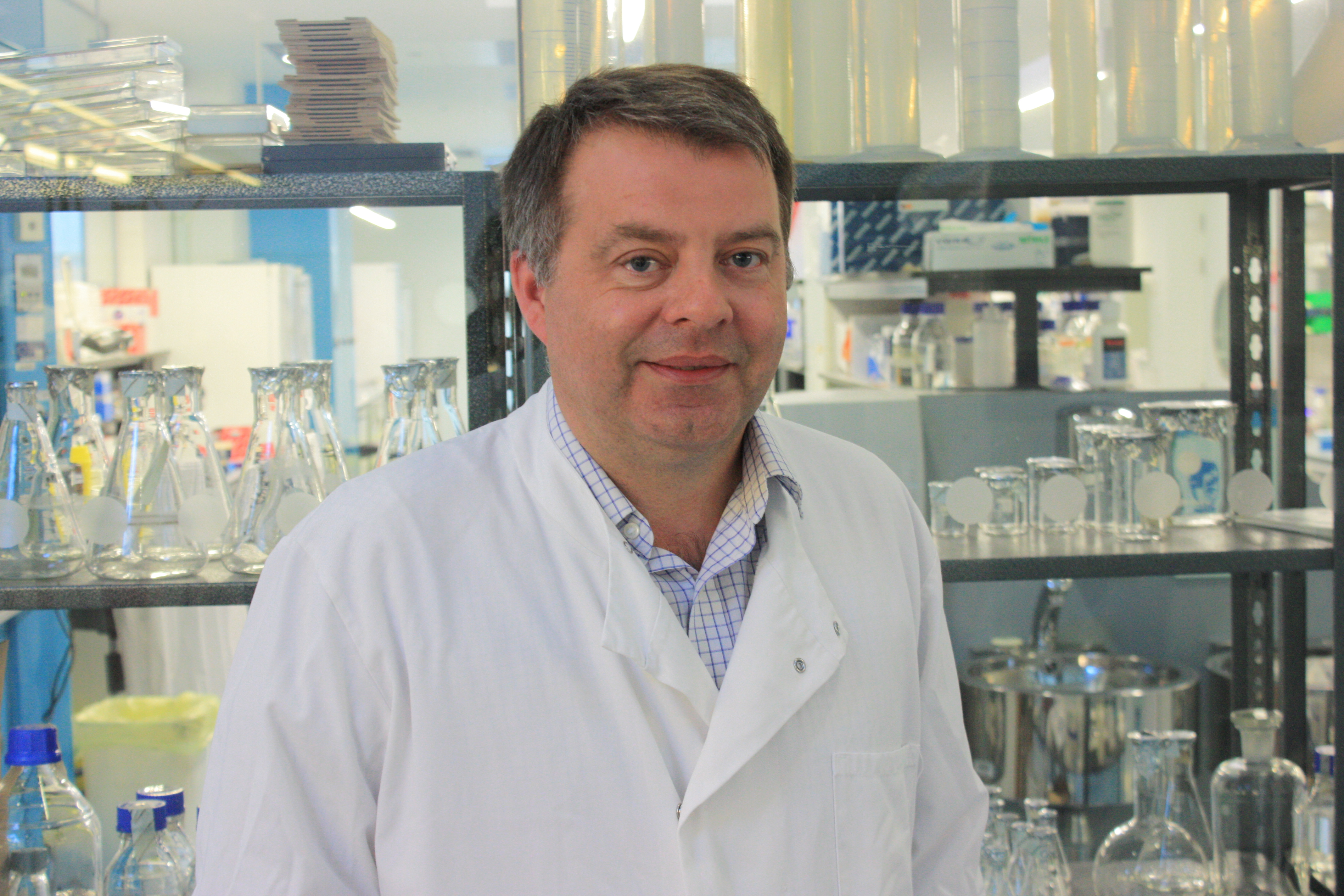Profile
After graduating from Sheffield University, I completed a PhD on the “Genetics of familial breast cancer” which involved genetic studies to identify the two breast cancer genes, BRCA1 and BRCA2 and their importance in familial and sporadic breast cancer. In addition to my studies in breast cancer genetics, I formed a longstanding collaboration with Professor Irene Leigh to establish a genetic and cellular biology programme on inherited skin disorders including palmoplantar keratodermas. After a short Wellcome Trust postdoctoral in which time we identified Connexin 26 (encoded by GJB2) as the main genetic cause of hearing loss, I joined SmithKline Beecham (now GlaxoSmithkline) where I used a bioinformatic approach to identify new molecular targets. From there I returned to academia to build an independent research team working on human skin genetics and keratinocyte biology. I was made Professor of Human Molecular Genetics in 2003.
Selected roles and prizes:
- I was deputy Director of Research at the Blizard Institute (2013-2017)
- Awarded the prestigious Chanel-CERIES award for skin research 2016
- ESPD Schnyder Memorial Prize Lecture in 2018
- I am past President (2018-2019; first non-clinical president in its 49 year history) of the European Society of Dermatological Research (2013-2021); ESDR Scientific Programme Chair 2015, 2016 and 2017
- Section Editor (Molecular Genetics and Pathology) for Cell & Tissue Research and Re-views and Perspectives Editor for the Journal of Investigative Dermatology
- Co-lead of the Barts Charity Lecturer programme and the Barts Centre for Squamous Research
Teaching
- PBL
- Module lead for the Fundamentals of Medicine MBBS module (2010-2013)
- Medical Curriculum book chapters include:
- Neil Rajan and David P. Kelsell: Chapter 2: Human Genetics. Clinical Medicine; Feather, Randall, Waterhouse (10th edition)
- David P.Kelsell and Denise Syndercombe-Court. Human Genetics. Book chapter in: Medical Sciences. Editors Naish, Revest and Syndercombe-Court. Elsevier. British Medical Association first prize 2015.
Applications for PhD studentships always welcome.
Research
Research Interests:
I lead a research group with sustained grant funding including from MRC, BBSRC, British Skin Foundation, Cancer Research UK and the British Heart Foundation. The outputs from this work include landmark research findings, impact on clinical management and the training of future researchers both clinical and non-clinical (24 awarded PhD students to date). I was awarded the prestigious Chanel-CERIES award research award in 2016. My research largely focuses on the molecular mechanisms underlying inherited non-syndromic and syndromic skin disease leading to a number of key scientific findings not only in skin biology but in hearing loss, cardiomyopathy and oesophageal cancer. These cross-clinical disciplinary human studies are providing novel insights into disease and their underlying cellular mechanisms. In addition to human biopsy material, novel model systems are being used to provide new biology and insights into disease of the naturally stressed palm/sole skin, the heart and the oesophagus.
My current research interests are:
- iRhom2 and the keratinocyte stress response
- iRhom2 in oesophageal squamous cell cancer
- Desmoplakin in skin disease and cardiomyopathy
- Palmoplantar keratodermas
Publications
Key Publications
DP Kelsell, J Dunlop, HP Stevens, NJ Lench, JN Liang, G Parry, RF Mueller, IM Leigh (1997). Con-nexin 26 mutations in hereditary non-syndromic sensorineural deafness. Nature, 387, 80-83.
EE Norgett, SJ Hatsell, L Carvajal-Huerta, J-C Ruiz Cabezas, J Common, PE Purkis, N Whittock, IM. Leigh, HP Stevens, DP Kelsell (2000). Recessive mutation in desmoplakin disrupts desmoplakin/intermediate filament interactions and causes dilated cardiomyopathy, woolly hair and keratoderma. Human Molecular Genetics, 9,18, 2761-2766.
DC Blaydon, P Biancheri, W-L Di, V Plagnol, RM Cabral, MA Brooke, DA van Heel, F Ruschendorf, M Toynbee, A Walne, EA O’Toole, JE Martin, K Lindley, T Vulliamy, DJ Abrams, TT MacDonald, JI Harper, DP Kelsell (2011). Neonatal-onset inflammatory skin and bowel disease associated with a recessive loss-of- function mutation in ADAM17. New England Journal of Medicine. 365(16):1502-8.
Paola Arcidiacono, Catherine M. Webb, Matthew A. Brooke, Huiqing Zhou, Paul J. Delaney, Keat-Eng Ng, Diana C. Blaydon, Andrew Tinker, David P. Kelsell*and Anissa Chikh*(2018). p63 is a key regulator of iRHOM2 signalling in the keratinocyte stress response. Nature Communications (*joint senior authors). 9(1):1021.
T Maruthappu, A Chikh, B Fell, PJ Delaney, MA Brooke, C Levet, A Moncada-Pazos, A Ishida-Yamamoto, DC Blaydon, A Waseem, IM Leigh, M Freeman, DP Kelsell. (2017) Rhomboid family member 2 Regulates cytoskeletal stress associated Keratin 16. Nature Communications, 8:14174.
All Publications
